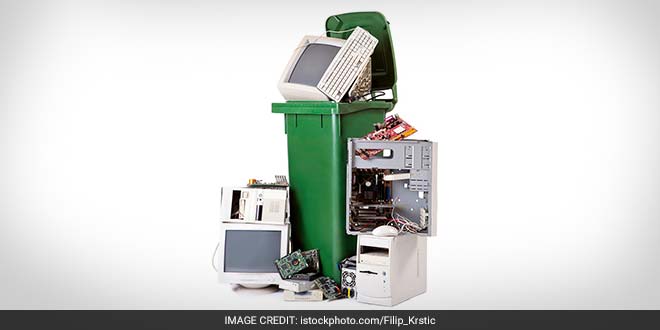Bhubaneshwar: With above a billion mobile phones in use across the country, e-waste has emerged as a major challange for the government, which will launch an awareness cum sensitisation programme here from December 15 to March 31.
This was decided at a workshop organised by National Association of Soft Ware and Services Companies (NASSOCOM), Manufacturing Association of Information Technology (MAIT) and Union Ministry of Electronics & Information Technology.
A pilot programme is being run Kolkata, Patna, Ranchi, Puducherry, Guwahati, Imphal, Panjim, Moradabad and Indore, besides Bhubaneswar, NASSCOM officials said.
Chief Secretary A P Padhi told the workshop that e-waste management should be made an economically viable option so that professional agencies take up the work in a scientific and systematic manner.
Cities need to be kept clean and free of waste burdens for the sake of economic activities, he said and emphasised on awareness on cleanliness from childhood.
He asked the forest and environment department to initiate a special awareness drive in close collaboration with school and mass education department and higher educational institutions.
Secretary to forest and environment department S C Mohapatra said e-waste is an important and emergent issue because of its environmental impacts.
Member Secretary of State Pollution Control Board, Debidatta Biswal said Odisha has already initited various steps for e-waste management and presently around 9500 eco-clubs have been formed in various educational institutions throughout the state.
CEO, NASSCOM Foundation, Shrikant Sinha said “We all feel proud today that India has crossed over a billion mobile phones, but the fact also remains that these smart devices of today are going to be the e-waste in a very near future. The situation gets even worse when we include all the other e-waste categories.”
The e-waste is mostly handled by child labourers on open grounds and broken down manually to extract recyclable metals which are resold. It left both the workers and soil exposed to toxic materials like lead, cadmium, mercury and the acid fumes generated in the process, he said.






























